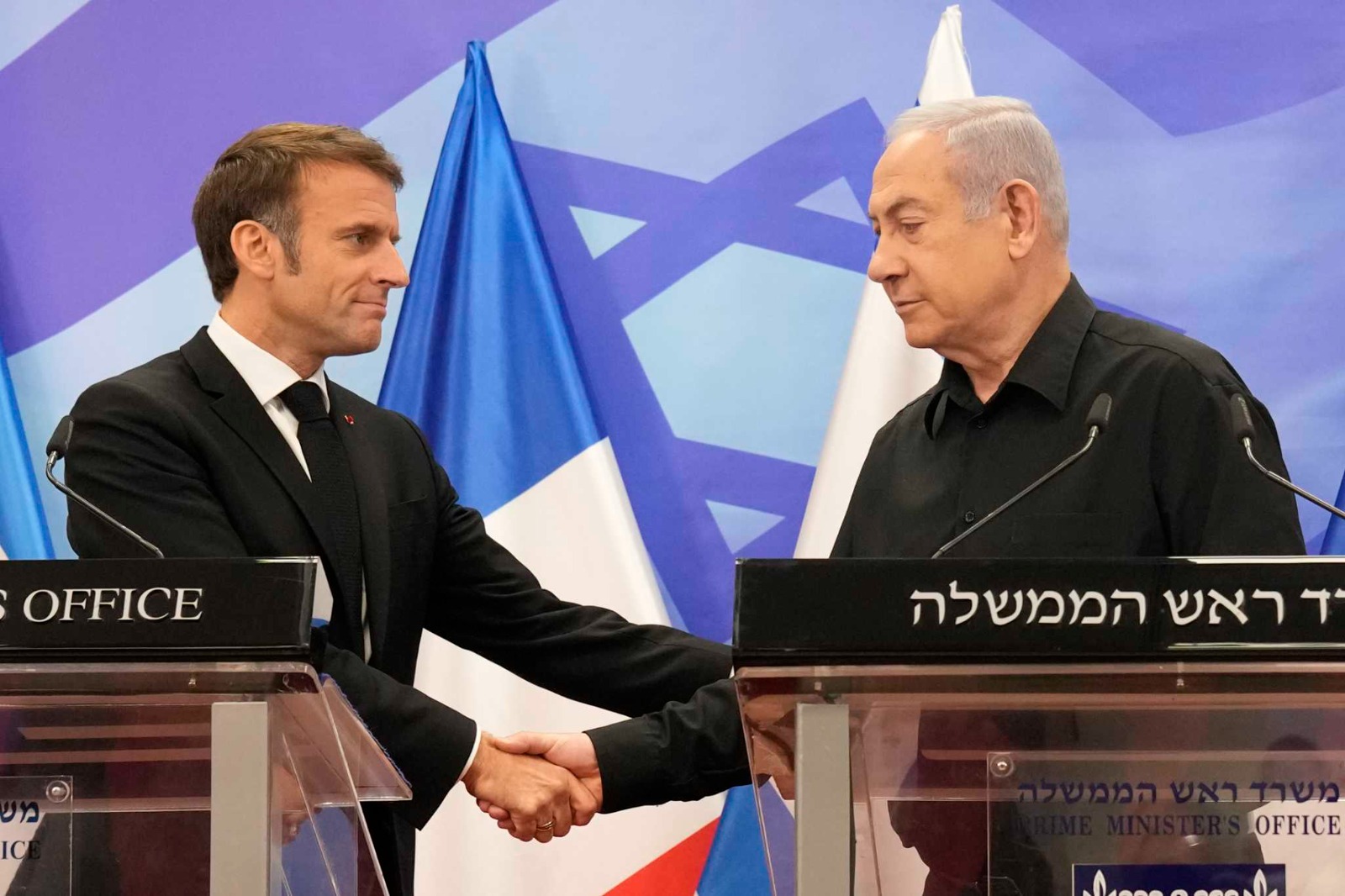French President Emmanuel Macron embarked on a two-day journey to the Middle East, starting in Israel, with a bold proposal in hand – to establish an international coalition aimed at countering the activities of the Palestinian armed group, Hamas. However, his efforts have thus far yielded little public support from the leaders he met with during his visit, which included Israel, the West Bank, Jordan, and Egypt. Macron’s proposition centers on cooperation, intelligence sharing, and the financial combat against terrorism, rather than deploying troops on the ground.
Leaders Remain Silent on Macron’s Proposal
Despite the fervor of Macron’s proposal, leaders across the Middle East remained conspicuously silent during his visit. The proposition, which calls for the creation of a regional and international coalition to confront Hamas, was discussed during Macron’s meeting with various leaders, including Israeli Prime Minister Benjamin Netanyahu. However, Netanyahu refrained from making any specific comments regarding the French offer. This lack of a public response raises questions about the feasibility and support for such an initiative.
Macron’s office clarified that the proposal does not entail deploying troops but rather focuses on sharing intelligence and combating the financing of terrorism. The onus, they stated, falls upon their partners, particularly Israel, to express their specific needs in this regard.
Limited Enthusiasm and U.S. Involvement
While Macron’s proposal has reached the ears of U.S. officials, it has not progressed to the point of serious consideration. Informal discussions within the U.S. administration and with other countries have highlighted the absence of Arab interest in forming such a coalition. U.S. officials believe that Arab buy-in and actual participation, similar to the anti-IS coalition in Iraq and Syria, are vital for the success of a multinational operation.
It is essential to note that the U.S. State Department designated Hamas as a terrorist group in 1997, and this classification is shared by the European Union and various Western countries. However, over the years, Hamas has received support from various Arab countries, including Qatar and Turkey, and has more recently formed closer ties with Iran and its allies.
Regional Leaders’ Concerns and Macron’s Ongoing Efforts
King Abdullah II of Jordan, during his meeting with Macron, called for international pressure on Israel to halt its attacks on Gaza. Yet, the coalition issue did not find a place in Egyptian President Abdel Fattah el-Sissi’s joint declaration with Macron. El-Sissi, while cautioning his forces against direct involvement in the conflict between Hamas and Israel, expressed the need for prudence in military decisions.
Before departing from Cairo, Macron conveyed his impression that leaders in Egypt and Jordan were deeply concerned about the situation in their region. He emphasized their willingness to collaborate discreetly, especially concerning top security issues.
Macron’s office indicated that discussions with France’s partners will continue in the days ahead. The French president is slated to participate in a European summit commencing in Brussels on Thursday. Macron’s visit comes in the wake of visits by U.S. President Joe Biden, British Prime Minister Rishi Sunak, German Chancellor Olaf Scholz, Italy’s Giorgia Meloni, and The Netherlands’ Mark Rutte.
Héloïse Fayet, a Middle-East researcher at the French Institute of International Relations, pondered what France and other nations could bring to Israel in the fight against terrorism, especially given Israel’s advanced capabilities in this domain. Macron’s proposal remains a topic of intrigue and debate, with its potential outcomes and global support yet to fully crystallize.















